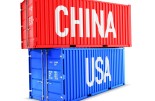AXA IM: UK-US deal secures car export protection but poses cap on expansion
AXA IM: UK-US deal secures car export protection but poses cap on expansion

Gilles Moëc, AXA Group Chief Economist and Head of AXA IM Research, highlights the indications of the UK-US deal for both UK and EU markets:
“Even if the UK-US deal turns out to be the general blueprint, it is not a very engaging one. The 10% “basic tariff” (still four times the pre-Trump average rate) looks non-negotiable beyond very small carveouts, and US concessions come with clear limits.
The UK may have found some protection for its car industry’s current volume of exports to the US, but in practice, it is now faced with a cap on any expansion. Even the carveout on steel and aluminium comes with “security conditions” which we suspect entail a decoupling from Chinese inputs and investment.
Besides, we find it surprising that a debate has not yet started in the UK on whether preferential treatments for US products may make talks with Brussels on better access to the EU market – more central for the British economy – more difficult. Yet, crucially, no quid-pro-quo on services was included in the UK deal, despite London’s readiness to revisit its Digital Services Tax.
Any expansion of the trade war to services would be another blow to globalisation. The rise in the trade intensity of global industrial production has been slowing down over the last 15 years: the “enthusiastic phase” of industrial globalisation ended well before the surge in mercantilism in the US political life. Conversely, global trade in services continues to make progress.
The US has a vested interest in promoting free trade in services given its dominant position there. The blow could come from those trying to retaliate against US protectionism on goods. Given the share of services trade in their GDP though, higher than in the US, such path would not necessarily work in the best interests of the Europeans.”










